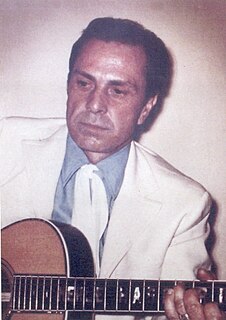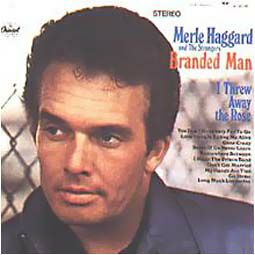
Branded Man is the fourth studio album by American country singer Merle Haggard and The Strangers. It was released on Capitol Records in 1967.

Sweet Rosie Jones is an album by Buck Owens and his Buckaroos, released in 1968.

I'm a Lonesome Fugitive is the third studio album by Merle Haggard and The Strangers released on Capitol Records in 1967.
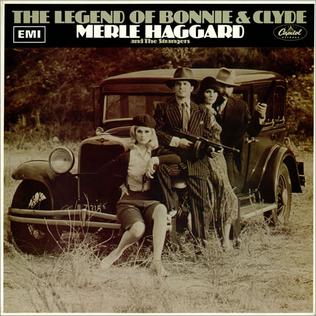
The Legend of Bonnie & Clyde is the sixth studio album by Merle Haggard and The Strangers released on Capitol Records in 1968. It rose to number 6 on the Billboard country albums chart.
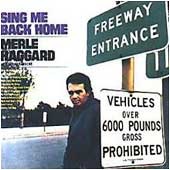
Sing Me Back Home is the fifth studio album by American country singer and songwriter Merle Haggard and The Strangers, released in 1968 on Capitol Records.

A Portrait of Merle Haggard is the tenth studio album by American recording artist Merle Haggard and The Strangers, released September 2, 1969.
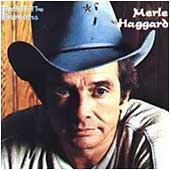
Back to the Barrooms is the 31st studio album by American country singer Merle Haggard, released in October 1980. He is backed by Norm Hamlet and Don Markham of The Strangers.

The Fightin' Side of Me is the second live album by Merle Haggard and The Strangers, released in 1970. Like the song "Okie from Muskogee" led to a quickly released album, The Fightin' Side of Me was also quickly released because of the run of success of Haggard's patriotic hit single "The Fightin' Side of Me".

Someday We'll Look Back is the thirteenth studio album by American recording artist Merle Haggard and The Strangers, released in 1971. It reached number 4 on the Billboard country albums chart.

Let Me Tell You About a Song is the fourteenth studio album by American country singer Merle Haggard and The Strangers, released in 1972. It reached #7 on the Billboard Country album chart and #166 on the Pop album chart. The lead-off singles were "Grandma Harp" and "Daddy Frank " — both reached #1.
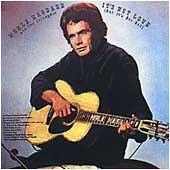
It's Not Love is the fifteenth studio album by American country singer Merle Haggard and The Strangers, released in 1972. It reached number one on the Billboard country albums chart. The lead off single was "It's Not Love " which also reached #1 on the charts.
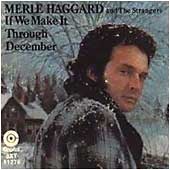
If We Make It Through December is the sixteenth studio album by American country singer Merle Haggard and The Strangers, released in 1974. It reached number 4 on the Billboard country album charts. The title track was previously released on Haggard's Christmas release of 1973, A Christmas Present. The single spent four weeks at No. 1 on the Billboard magazine Hot Country Singles chart in December 1973 and January 1974, and cracked the Top 30 of the Billboard Hot 100. "If We Make It Through December" was the No. 2 song of the year on Billboard's Hot Country Singles 1974 year-end chart.

The Roots of My Raising is the 21st studio album by American country singer Merle Haggard and The Strangers, released in 1976. It was his third release in 1976 and his last on the Capitol label until his return in 2004. It reached number 8 on the Billboard country albums chart.

16 Biggest Hits is a 1998 Merle Haggard compilation album. It is part of a series of similar 16 Biggest Hits albums released by Legacy Recordings.
"The Bottle Let Me Down" is a song written and recorded by American country music artist Merle Haggard and The Strangers. It was released in August 1966 as the second single from the album Swinging Doors. The song peaked at number three on the U.S. Billboard Hot Country Singles.
"Swinging Doors" is a song written and recorded by American country music artist Merle Haggard and The Strangers. It was released in February 1966 as the first single and title track from the album Swinging Doors. The song peaked at number five on the U.S. Billboard Hot Country Singles.

Songs I'll Always Sing is a two-record compilation album by American country music singer and songwriter Merle Haggard and The Strangers, released in 1977. It reached #15 in the US Country Charts. The album collects many of Haggard's best known recordings during his successful run at the label, including nine of his twenty-four #1 hits dating back to 1966.

Strangers is the debut studio album by Merle Haggard. It was released on September 27, 1965, by Capitol Records.

Just Between the Two of Us is a duet album by country singers Bonnie Owens and Merle Haggard with the Strangers. It was released in 1966 by Capitol Records.

Rainbow Stew Live at Anaheim Stadium is a live album by American country music artist Merle Haggard with backing by The Strangers. It was recorded in October 1980 and released in July 1981 on MCA Records.



